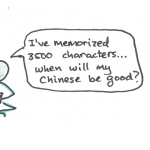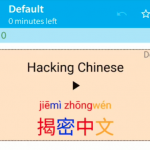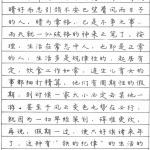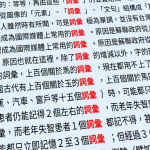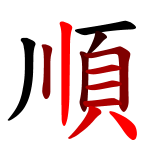Articles in the ‘Vocabulary’ category Page 9
-
The nine principles of learning (and the mistakes from failing to follow them)
In 2014, Scott Young spent 100 days learning Chinese, after which he was able to speak freely on a wide range of topics, as well as pass HSK 4. Since then, he’s continued exploring effective learning and has now published a book called Ultralearning. He hasn’t abandoned Chinese, though, and in this article, he discusses nine important principles for effective learning and how they relate to studying Chinese.
Read → -
101 questions and answers about how to learn Chinese
This is the biggest collections of questions and answer about how to learn Chinese anywhere. The questions are sorted into categories, and each question is answered briefly before links to further information is provided. If you have a question about how to learn Chinese, you’re very likely to find the answer here! If your question hasn’t been answered, please consider leaving a comment!
Read → -
The most common Chinese words, characters and components for language learners and teachers
A good principle for choosing what to learn is to focus on the most useful things first, but how do you know what’s most useful? Frequency lists can be helpful, but are often misused.
Read → -
7 things you were taught in Chinese class that are actually wrong
Some things your Chinese teacher tells you or you read in your textbook are well-meant simplifications. This is okay, because the whole picture might be overly complicated and not very helpful. Some other things your Chinese teacher tells you or you read in your textbook are just wrong, though. This article lists seven examples of things that are often taught in Chinese class, but are actually incorrect.
Read → -
Tone errors in Mandarin that actually can cause misunderstandings
Accidentally saying “chest hair” in Chinese when you mean “panda” is amusing, but it rarely causes confusion. Let’s look at some tone mistakes that actually do cause confusion!
Read → -
Free and easy audio flashcards for Chinese dictation practice with Anki
Audio flashcards can be great for improving basic listening ability or preparing for 听写/聽寫 or dictation. It used to be time-consuming and difficult to do, but with Anki and good text-to-speech engines, it’s now both easy and free!
Read → -
Reading is a lot like spaced repetition, only better
Learning vocabulary through reading and by using spaced repetition software are both common strategies employed by students learning Chinese, but which one is the most efficient? In this guest article, Kevin Bullaughey from WordSwing compares the two methods in terms of exposure and coverage.
Read → -
How to improve your Chinese handwriting
Learning to write Chinese by hand is a complex task. This article gives an overview of what it means to write by hand, answering questions like: “Do I need to learn to write by hand?”, “What skills does handwriting in Chinese require?” and” How do I improve my handwriting?”
Read → -
Should you focus on learning Chinese words or phrases?
When learning Chinese, should you focus mainly on learning words or phrases? This question is not easy to answer and depends on a number of factors. This article breaks it down and discusses the pros and cons of each.
Read → -
Is it necessary to learn the stroke order of Chinese characters?
Stroke order can feel difficult and pointless for beginners, but if you want to be able to write Chinese characters, it’s important to get it right from the start. Instead of taking my word for it, let me explain why stroke order matters!
Read →
